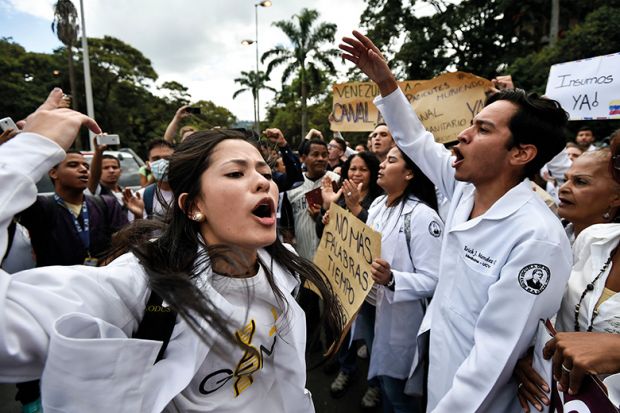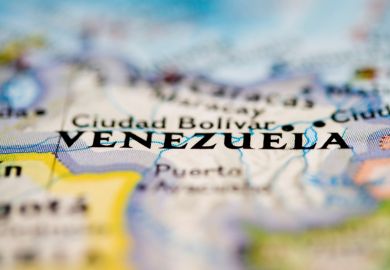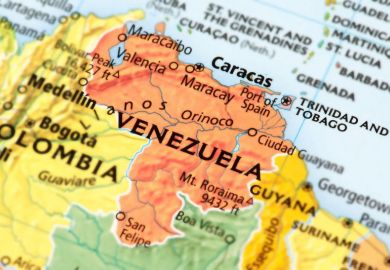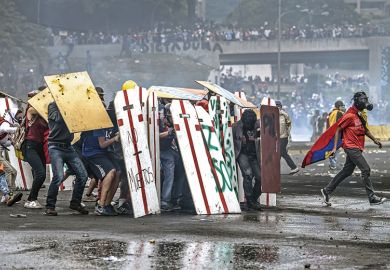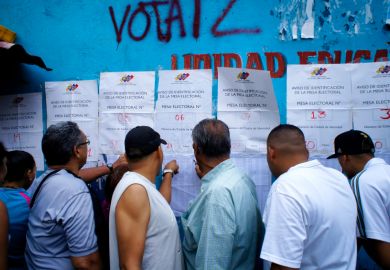University leaders in Venezuela have called on the United Nations to intervene in the country’s political crisis amid warnings that the deterioration of the higher education system is approaching the point of no return.
After years of political turmoil resulting in sky-high inflation rates and scant public investment, some 3 million Venezuelans are said to have left the country since 2014. Many of them are believed to be students and early career professionals, including academics who can no longer afford to live on what they receive from poverty-stricken universities.
Scores of people have died in protests sparked by the stand-off between Nicolás Maduro, who has led the country since 2013, and Juan Guaidó, the president of the National Assembly, who declared himself national president last month in the wake of 2018’s contested elections. University students were believed to be among the dead.
In a statement, the country’s rectors’ association, Averu, condemned the “impossible violation” of human rights in Venezuela. It urged the UN to intervene, calling on the body to examine “the possibility of taking measures to prevent [further] aggravation”.
José Ibarra, professor of social care at the Central University of Venezuela, said that staff at his institution were living on “very poor salaries” and, in some cases, were not getting paid at all.
Last year, lecturers across the country were encouraged to seek secondary sources of income as institutions warned of an increasing struggle to stay afloat through a deepening economic crisis.
But Professor Ibarra said that his university was trying as best as it could to continue teaching.
“The situation is worrisome,” he said. “Every day, the price of food increases and you get many students who have not had breakfast. Sometimes my colleagues teach without having eaten themselves.”
Universities were operating to a “three-day cycle”, Professor Ibarra explained, having to frequently go on strike to force the Ministry of Education to release small amounts of higher education funding.
On 30 January, Simón Bolívar University, one of Venezuela’s most prestigious institutions, announced that it had been cut off from the main water supply for 65 days. The university campus was rationing the water left in two reserve tanks, and allowing the surrounding community limited access to bathrooms.
Raisa Urribarri, an emeritus professor in human and social sciences at the University of the Andes, said that this was one of countless examples of how universities were striving to support the community despite all the upheavals. However, she warned, “if a change is not achieved in Venezuela, breaking the cycle of [universities] deteriorating…will be impossible”.
Universities “have a clear role to play” in rebuilding the country’s infrastructure, she said.
“Unfortunately, many academics – the most qualified as well as the youngest – have emigrated,” Professor Urribarri continued.
“It will be a task for the new political leadership to create the right conditions [to convince them to] return,” she said, adding that “universities in Venezuela have been devastated” by a draining of resources.
Register to continue
Why register?
- Registration is free and only takes a moment
- Once registered, you can read 3 articles a month
- Sign up for our newsletter
Subscribe
Or subscribe for unlimited access to:
- Unlimited access to news, views, insights & reviews
- Digital editions
- Digital access to THE’s university and college rankings analysis
Already registered or a current subscriber?
